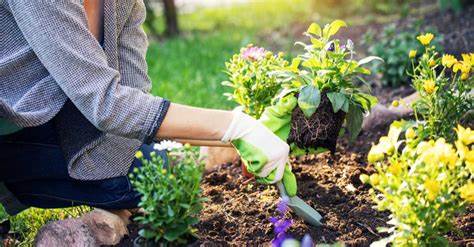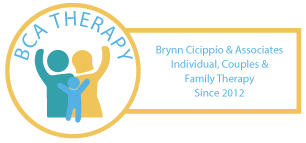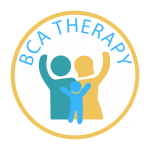Have Self-Love in your Life
Self-Love comprises four aspects which include self-worth, self-awareness, self-esteem, self-care, and self-esteem. If one is missing, then you do not entirely have self-love. To have it, we should be aligned with these four aspects.
- Self-Worth is the level of importance you place on yourself. It is emotional outlook that determines how and what you feel about yourself in comparison to other people.
- Self-Awareness is being aware of your thoughts, how they affect your emotions, and how emotions cause you to act. Having self-awareness helps you understand yourself and is a big part of your personal development and is a key part to achieving success.
- Self-Esteem is a positive or negative orientation towards oneself. To boost your self-esteem, do things you enjoy, spend time with people who make you happy, and take care of yourself.
- Self-Care is the practice of taking action in protecting your own well-being and happiness, especially during times of stress. There are many ways can practice self-care, but it typically looks different for each individual. Start a healthy self-care routine that works for you!
Guide to be Alcohol Free
Whether its Dry January or a total lifestyle change, everyone has the choice and ability to be alcohol free! If this is your path, here are some tips to keep in mind along the way:
1. No one cares that you aren’t drinking. Sure, they may ask and be curious because they see a change in your routine, but you not drinking has no bearing on them. And if it does, might be time to reconsider the time you invest in that relationship.
2. Mocktails are delicious! Thank God its 2023 and there are many delicious and not super sugary options in the world, along with some great local establishments that have booze free options. Check out Mingle Mocktails (https://www.minglemocktails.com) and Spiritless (https://spiritless.com) for drinks at home and The Volstead (https://volsteadzeroproof.com) is a great hang out in Philly
3. Create a menu of coping skills: Alcohol is the go-to stress reducer for many. It’s also a social lubricant. Being alcohol free means you have to change your automatic responses to certain stimuli. What’s going to be your new way to unwind after a hard day? How are you going to celebrate a siblings milestone birthday? Get out your menu:
1. Hot bath or shower
2. Mocktails
3. Guided Meditation
4. Get Outside/ Be active
5. Praying/ Spiritual connection
6. Get creative/ Find a hobby
4. Move your body! Moving your body is one of the best responses to stress and coping skill available to you at any time. I specifically use the phrase move your body as opposed to exercise because going to the gym feels like a chore. Moving your body can mean yoga in your living room, snow tubing with friends, dancing in your kitchen, or shooting hoops at the park. Moving your body releases endorphins, makes you feel good, and makes intoxicating drinks less attractive.
5. Remember your WHY: Slap a post it on the bathroom mirror or set reminders on your phone. Keep your eye on the prize… reasons might include:
1. Sleep better
2. Less anxiety
3. Support heart health
4. Increase focus
5. Clarity with decision making
6. Increase patience
7. Engage in mindfulness (see benefits here: https://www.apa.org/monitor/2012/07-08/ce-corner)
8. Be a trailblazer among your peers
If your use of alcohol feels out of your control, these tips may not be effective for you. Be sure to consult with a therapist or physician.
Learn More
Importance of Self-Care in a Relationship
How do you practice self-care in a relationship? Taking care of yourself first should always be your number one priority. If you are not caring about yourself first, how are you supposed to be the best person you can be around your significant other when you are at your best?
Here are some ways to practice self-care in a relationship:
- Setting boundaries. Doing this is very crucial in a healthy relationship because it keeps a balance between you and your partner. This also helps reduce conflict, because it sets an example of what you and your partner expect from each other. This will help bring you and your partner closer together because setting boundaries creates open communication.
- Hanging out with a group of your own friends. It is important to have a social life outside of your relationship.
- Maintaining independence is important in a relationship. Don’t rely on or allow your partner to control your judgement or tell you what to do.
- Let your partner know what you like and don’t like. It’s also difficult and may lead to some conflict. But it is important to say how you feel and eliminate anything that is not making you feel good and don’t like. If something is not making you happy you don’t have to do it and that brings the importance of the word “NO” and setting boundaries.
- Having a hobby. This can create a safe space that makes you happy or time set away from your partner that you like. You don’t always have to be doing everything with your partner. Just get a hobby of your own. For example, doing a craft, gardening, collecting coins, going on a hike by yourself. These are examples of self-care.
When you and your partner practice self-care in a relationship you both will be happier in your relationship. It is not selfish in a relationship, and you and your partner will be happier in your relationship
Learn More

Mental Health during the Holiday Season
These are supposed to be happy times during the holiday seasons. Between everything that may be going on holiday parties, family get togethers, vacations, and celebrating the new year. The holidays can be full of joy, but they can also be stressful and challenging for those impacted by mental health, devastation, or loss of a loved one.
According to NAMI, “You are not alone”, as a 2021 survey showed that three in five Americans feel the holidays negatively impacted their mental health [1].
So, what are ways that we can care for our self during the holiday seasons?
Here are some tips to prevent holiday stress and depression:
- Take care of yourself. This can be done through self-care and forming healthy habits. For example, going on a walk, doing yoga, going to the gym, watching a movie, reading a book or something that can help you feel less worried and take your mind off a stressful environment and help you boost your mental health and deal with stressful activities.
- Ask for help. Talk with a therapist or make plans with a trusted individual, best friend that you can trust, or a trusted family member. Asking for help is not a weakness, it shows that you are strong and have the courage to do so you matter. If you are sad, anxious, depressed, stresses please don’t be afraid to ask for help. BCA Therapy has therapists in Wayne and Yardley that can help you today!
- Focus on what you can control. Don’t worry about things that are out of your control. If something is bothering, you that is out of your control quit worrying about it and thinking about it, there is nothing you can do about it. This will help you relieve a lot of stress and help you focus on what is in your control.
- Avoid drugs and alcohol. Just because everyone around you is drinking doesn’t mean you have too as well. If someone offers you a drink and you don’t want to drink say “NO”. It is important to set boundaries for the holiday season no matter who is around. By avoiding drugs and alcohol you avoid an increase in depression, anxiety, and other mental health issues.
- Identify holiday triggers. Triggers could be people, places, and things that remind you of past trauma or upsetting events. Examples of holiday triggers could be traumatic memories, a narcissist family member, a loss of a loved one, stressful family relationships, or emotional breakups. To avoid holiday triggers put a plan in place ahead of the holidays to avoid these emotional holiday triggers. These plans can put a plan in place to avoid those triggers and help you reduce holiday related stress.
Source:
[1] Mental Health During the Holidays: 8 Tips That Can Help | NU
Learn More

Does No Conflict Equal a Healthy Relationship?
The absence of conflict does not equate to a healthy relationship. By avoiding conflict, you are not able to express your true feelings in your relationship.
When you store up your frustrations and keep them to yourself. This can cause you to feel stressed and anxious. It can also cause negative impacts on your overall health and well-being. Not addressing conflict in a productive manner has impacts on our relationships. We are not being honest with ourselves and the other people in our lives.
Disagreement happens in all relationships, but what matters is how conflict is dealt with. The way you deal with conflict can determine whether a relationship is healthy or unhealthy.
Here are some things to keep in mind when handling your next argument way:
- Really listen to your partner can help prevent misunderstanding and shows them you are really paying attention and caring about what they are saying. Don’t interrupt your partner, don’t speak over them, don’t act like you know what they are saying.
- Develop your assertive side by setting boundaries, speaking directly and calmly, keeping message clear and understandable, and believing in your ability to handle the situation.
- Being calm and respectful during an argument. Be respectful, insult your partner, and don’t cross boundaries. If your partner consistently yells at you, gets heated, gets aggressive, or starts cursing then you most likely are in an unhealthy or abusive relationship.
- Welcome open conversations where you and your partner sit down and communicate openly about what is bothering them and going well in the relationships. If you and your partner can do this without retaliation and becoming defensive, then you are in a healthy relationship.
Sources
- 7 Tips for Handling Conflict in Your Relationship (joinonelove.org)
- 3 Ways to Deal with Conflict in Relationships | Lyra Health
Learn More

